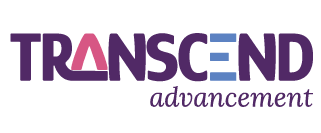How to Foster Equity-Centered Donor Engagement
Traditional donor engagement strategies often favor those with wealth, influence, and social connections. But if nonprofits truly want to create lasting impact, they must embrace equity-centered donor engagement—a model that values all supporters, regardless of financial capacity, and ensures that fundraising practices reflect principles of fairness, inclusion, and accessibility.
What Is Equity-Centered Donor Engagement?
Equity-centered donor engagement shifts the focus from transactional giving to relationship-based philanthropy, ensuring that:
All donors, regardless of giving capacity, feel valued and included.
Fundraising practices acknowledge and challenge systemic inequities in philanthropy.
The donor experience reflects diverse perspectives and respects the lived experiences of your community.
By prioritizing equity over exclusivity, nonprofits can foster deeper, more authentic donor relationships.
How to Implement Equity-Centered Donor Engagement
1. Diversify Donor Recognition & Stewardship
Many fundraising programs prioritize major donors while offering limited engagement opportunities for smaller contributors. An equity-centered approach ensures that every donor, regardless of gift size, feels appreciated and valued.
Ways to do this include:
Highlighting all donors in impact reports instead of only listing top-tier supporters.
Creating inclusive giving societies that recognize contributions beyond financial gifts (e.g., volunteer hours, advocacy efforts).
Personalizing donor stewardship with meaningful touchpoints, not just automated thank-you notes.
When you celebrate a broad range of contributions, you encourage more people to see themselves as philanthropists.
2. Shift Away from Wealth-Centric Fundraising Events
Exclusive galas and high-priced fundraisers may generate revenue, but they also reinforce elitism in philanthropy. Consider incorporating accessible engagement opportunities that allow a wider audience to participate:
Sliding-scale event pricing to accommodate diverse income levels.
Community-based giving circles that allow donors to pool smaller contributions for greater impact.
Volunteer-driven engagement where time, skills, and advocacy are just as valued as monetary gifts.
A more inclusive fundraising culture strengthens donor relationships and fosters a sense of collective ownership in your mission.
3. Use Asset-Framing in Your Communications
How you talk about your beneficiaries and donors shapes engagement. Asset-framing means telling stories that highlight strength, resilience, and potential, rather than portraying communities as helpless recipients of charity.
Consider these shifts:
Instead of “We serve underprivileged youth,” say, “We invest in the leadership and potential of young changemakers.”
Instead of “We rely on our most generous donors,” say, “Every donor plays a vital role in creating change.”
Equitable donor engagement starts with respectful, empowering storytelling that affirms the dignity of all involved.
4. Build Transparent & Trust-Based Giving Models
Donors increasingly want to know how their gifts make an impact. Equity-centered fundraising embraces radical transparency by:
Clearly outlining how funds are allocated and their direct impact.
Inviting donors into decision-making processes, such as participatory grantmaking models.
Ensuring community members have a voice in shaping fundraising priorities.
When donors see that your organization is accountable, transparent, and values their input, they are more likely to become long-term advocates.
Let’s Build a More Equitable Philanthropic Landscape
At TRANSCEND Advancement, we help nonprofits create donor engagement strategies that reflect inclusivity, transparency, and trust. Whether you need help diversifying donor outreach, crafting asset-framed messaging, or designing equity-driven fundraising campaigns, we’re here to support you. Let’s work together to reimagine philanthropy and build a donor engagement strategy that aligns with your values.
